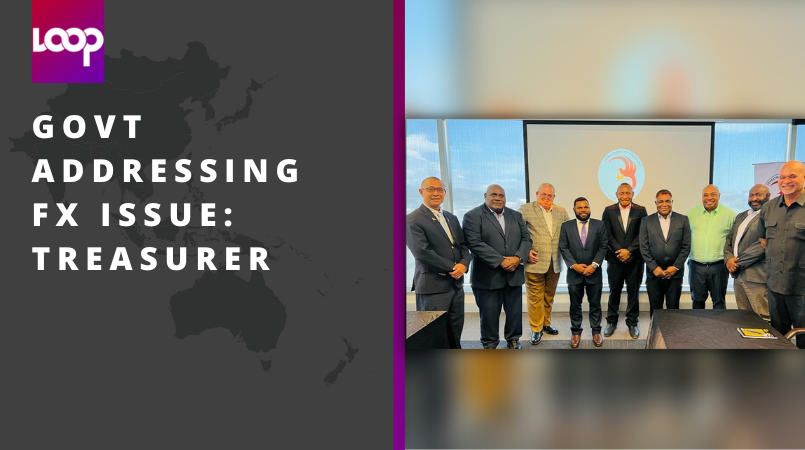
Treasurer Ian Ling-Stuckey said businesses have identified foreign exchange shortages as the greatest barrier to doing business in PNG.
“A bigger problem than law and order issues, a bigger problem than power shortages or lack of skilled staff,” said Ling-Stuckey, who is also Kavieng MP.
“This is why the Marape-Rosso Government wants to return to full Kina convertibility so that our currency has full standing in the international community.
“It is embarrassing that our Kina is facing barriers all around the world, whether in trade, or if we try and travel overseas. This is why we are continuing discussions with PNG businesses as well as international organisations on the best way forward for PNG.”
The Treasurer said prior to 2014, the Kina could be freely traded. However, due to bad decisions with the mishandling of the PNG LNG project and the fall in oil prices, there were disastrous consequences for the budget.
“Deep debt and deficit holes were created. And bad decisions on the value of the Kina that started the inevitable pattern of foreign exchange shortages we are experiencing today,” he outlined.
“The Marape-Rosso government is working to fix this mess. It has already increased by 300 percent the release of foreign exchange into the market, from USD30 million per month to USD100 million per month. This is only possible because of our shift to securing good, cheap, concessional financing. It has asked the IMF and others for advice on how we can best return to full Kina convertibility, as well as increased flexibility in our currency.
“The Government is going through consultations internally and externally to try and sort out what is best for PNG.”
The Treasurer said more information is needed on the numbers to know more about the likely winners and losers from any changes. Key questions include:
• Should we change our reference rate from the US dollar to a broader range of currencies reflecting our actual patterns of trade?
• Should we move from our fixed rate system to one that allows smaller, gradual changes up and down in what is known as a “crawl-like” arrangement?
• Should we actually formalise such changes through a range of formula, moving to “crawling peg” arrangement?
• Or should we return to PNG’s formally stated position of a “floating currency”, even if that risked a massive reduction in the Kina especially with the risks of an “over-shoot”?
• Who are the likely winners and losers from such changes?
• Do the costs of change outweigh the benefits?
• Do the costs of doing nothing, with on-going foreign exchange shortages, outweigh the costs of benefits of making a change?
• For possible losers, is there some other government policy change that can compensate them for a change?
“As revealed over the weekend, sometimes the winners in the views of some actually think they will be the losers. Clearly there is a need for more discussions. No decisions will be made until a roadmap for such changes is agreed by the end of August,” said Ling-Stuckey.
“The one clear PNG view is that it is just too risky to allow for a sudden change in the value of our currency. A large devaluation now of 15-20 percent simply makes no sense for PNG. This will not happen. The Government can affect this by its choice of foreign exchange regime.
“However, once this choice is made, it is up to our independent central bank, BPNG, to make decisions on the value of the Kina.
“We need to discuss a reasonable speed of any adjustment, the sequencing of such changes with other measures such as an improved auctioning process for foreign exchange, as well as other policy measures to ensure consistency between our foreign exchange rate policy and our monetary policy. Fixing our foreign exchange shortages is certainly not just about the value of the Kina.
“We are still in the discussion stage – no decisions have been made other than wanting to return to Kina convertibility over time,” stated the Treasurer.
